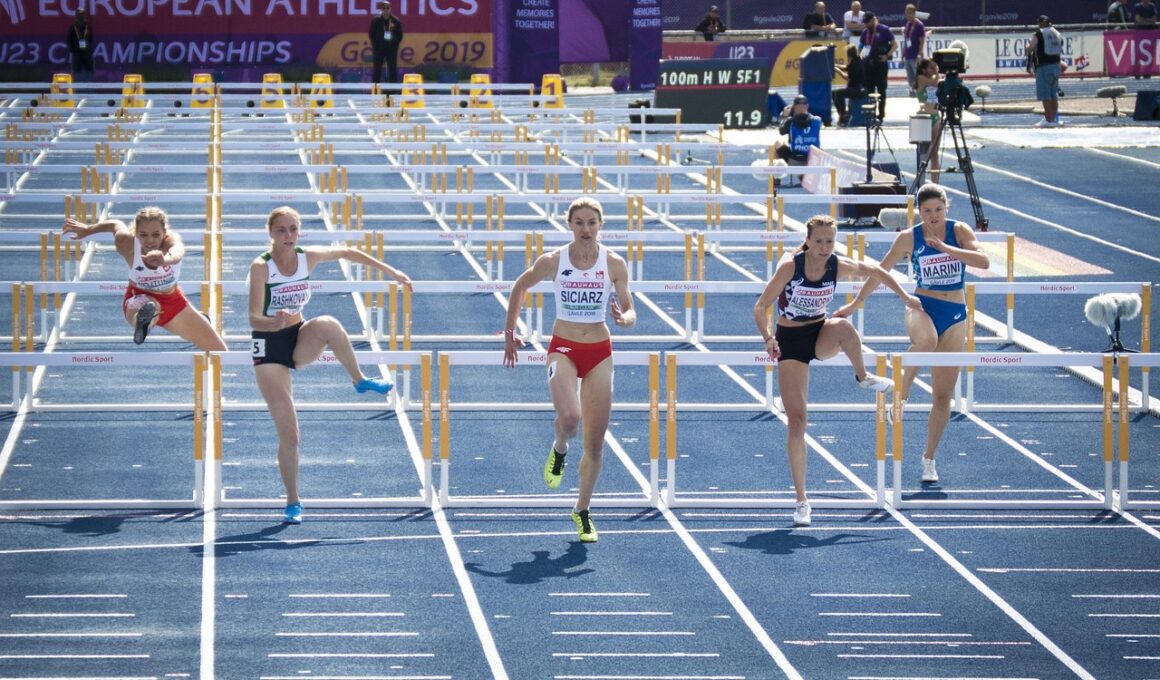Youth Athletics Outdoor Events: Upcoming Meets and Competitions
Youth athletics is an exciting and dynamic field that brings together young athletes from various backgrounds to compete in outdoor events. These competitions not only foster a spirit of camaraderie and sportsmanship among participants, but also encourage their personal growth and development. As we look to the upcoming outdoor events for youth athletes, it is vital to stay informed about the schedules, regions, and potential participation requirements. Various athletic clubs and organizations will host these events throughout the season, featuring different track and field disciplines, including races, jumps, and throwing events. Additionally, regional championships and state meets offer excellent opportunities for athletes to showcase their skills. Each event presents unique challenges that can help young participants grow and excel in their respective sports. Athletes will improve their performance while creating lasting friendships and memories during competitions. Parents and coaches are encouraged to support their young athletes by attending these meets and providing encouragement. With so many exciting events on the calendar, athletes have ample chances to excel and gain recognition in the world of youth sports.
As the outdoor season progresses, youth athletes can look forward to a variety of events planned across different venues. One of the highlights of the youth athletics calendar is the Annual Youth Championships, which features several events including sprints, relays, and field competitions. These championships are typically held in prestigious venues, drawing participation from a wide range of athletic clubs. It’s crucial for athletes to register in advance, ensuring they secure their spot among some of the best young athletes in their region. Coaches should guide their athletes on event selection, ensuring that each participant chooses competitions that align with their strengths and developmental goals. Registration deadlines vary, so being proactive is essential to prevent last-minute complications. In addition to competitive events, preparation also involves planning for travel and accommodation, especially for away meets. For families, this can be a great way to bond, creating a supportive atmosphere while cheering on the athletes. Preparing for competitions involves more than just physical training; mental readiness is equally important, with strategies like visualization and goal setting playing a critical role.
Key Events to Mark on the Calendar
Several exciting outdoor events should be marked on the calendars of youth athletes and their families. Among these is the Regional Track and Field Meet, which typically attracts large numbers of participants eager to demonstrate their skills. Scheduled for late spring, this event enables athletes to compete in a range of disciplines, providing valuable experience to help them sharpen their performance in preparation for future competitions. Additionally, various local meets are organized throughout the season, which present fantastic opportunities for young athletes to compete in familiar environments. These local meets often feature age group categories, allowing participants to compete against peers, which helps in building confidence and sportsmanship. Furthermore, the Local Club Championships will feature both individual and team events, encouraging athletes to support one another as they compete. Coaches often emphasize the importance of attending these meets to gain experience and develop their skills. Being part of a team fosters a sense of belonging, and participating in these local events prepares athletes for larger competitions where they can strive to exceed their personal best times and distances.
Beyond the excitement of competition, youth athletics include elements of community engagement and development. Many events focus on including underserved populations, ensuring that every child has the opportunity to participate in athletics. Organizations may host workshops or camps that provide training and education on proper techniques, which can be beneficial for youth athletes ranging from beginners to advanced levels. Additionally, community events enable athletes to give back, inspiring the next generation of sports enthusiasts. Participation in local charity events can help young athletes understand the importance of social responsibility, as they utilize their talents to uplift others. These initiatives reinforce the idea that sports are not just about winning medals but creating a broad impact through positive action. Youth athletics also play a role in personal development: teamwork, discipline, and resilience cultivated during competitions can have lasting benefits beyond the track or field. Coaches play a key role in nurturing these values, providing mentorship that extends beyond sports performance to help athletes grow into respectable individuals in their communities.
Preparation for Competitions
As youth athletes gear up for competitions, training and preparation become paramount. Coaches typically encourage consistent practice sessions that focus on honing technique and building endurance. Incorporating strength and conditioning elements into training can help improve overall performance and reduce the risk of injuries. Proper nutrition also plays an essential role in athletes’ preparation, providing the energy needed for optimal performance during competitions. Young athletes should be educated about consuming balanced diets, hydrating correctly, and potentially using sports supplements under the guidance of professionals. Mental preparation is equally vital; maintaining a positive mindset can help young athletes cope with competition stress. Techniques like mindfulness and visualization can be effective tools for athletes to build confidence and focus. Additionally, mock competitions can serve as practice environments, allowing athletes to experience the competitive atmosphere without the pressure of a major event. Families can support athletes by helping to create consistent routines that facilitate effective preparation while making the process enjoyable. By prioritizing both physical and mental readiness, youth athletes will approach competitions with increased confidence and performance.
During the competition season, athletes will not only test their skills but also engage with an exciting community of fellow competitors and fans. The energetic atmosphere at outdoor events can serve as a powerful motivator for the young athletes. Friends, family, coaches, and even supporters from the broader community create a supportive environment. This camaraderie often serves to reduce anxiety, making the experience more enjoyable for everyone involved. Young athletes will find inspiration in watching their peers compete, often pushing themselves to achieve better results. Participants are encouraged to celebrate their achievements, regardless of whether they win medals or not. Learning to value personal bests and improvements is a critical aspect of athletic development. Furthermore, athletes will gather valuable experiences through interactions with seasoned competitors and officials, learning the importance of respecting the sport and its traditions. Engaging in conversations with others who share a passion for athletics enhances their understanding and appreciation of the discipline. The lessons learned during these events often extend far beyond the athletic field, providing the youth with skills that resonate throughout their lives.
Final Thoughts on Upcoming Events
As the outdoor season unfolds, it becomes vital for young athletes, coaches, and families to collaborate to maximize the experience. Planning ahead, staying informed about schedules, and understanding each event’s requirements are crucial steps that can lead to a fulfilling competitive season. Developing a team culture that emphasizes support, resilience, and a shared passion for sports can enrich the overall experience for all involved. Reflecting on the journey so far, athletes should take time to acknowledge their personal growth and celebrate their milestones, both big and small. The relationships built within this community serve to motivate and inspire, creating lifelong friends and connections. Additionally, parents should play an active role in fostering their child’s love for athletics by attending events, volunteering, and celebrating successes. Ultimately, the outdoor athletics events represent more than just competition; they are valuable opportunities for young individuals to develop into well-rounded athletes and community leaders. With so much potential ahead, each upcoming event will bring athletes closer to their aspirations and growth.


